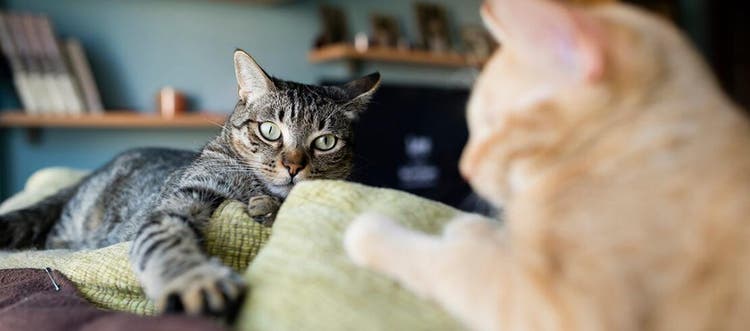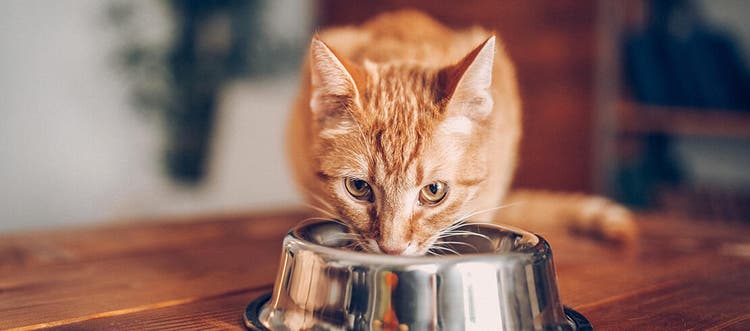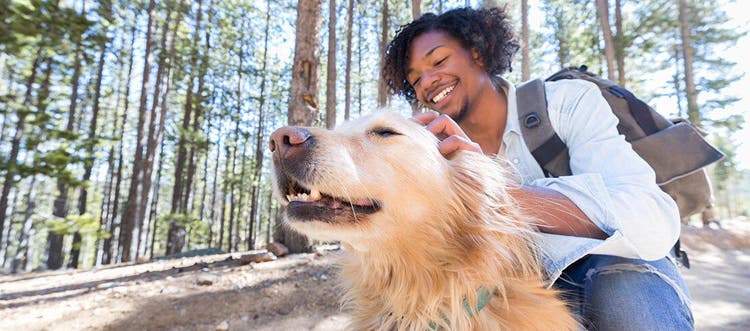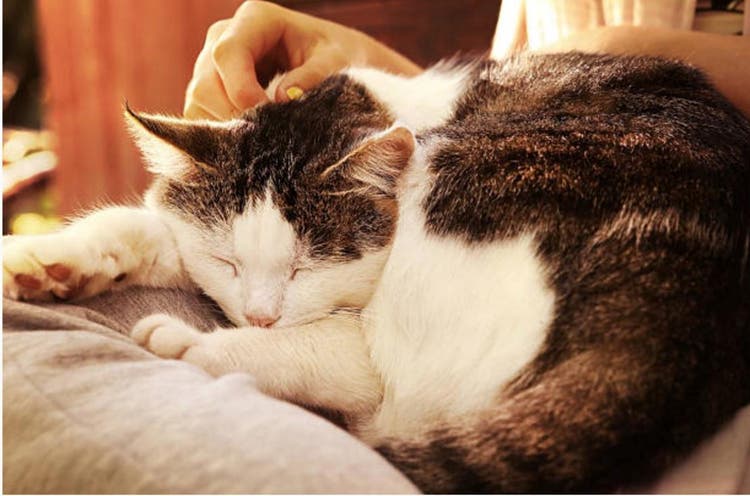Reviewed by Dr Abbie Lam DVM
Much like humans, cats change with age. Watch for these common senior cat health issues to make sure your cat is healthy and comfortable as it gets older.
Cats are living well into their senior years – the close relationship between humans and their cats, along with advances in veterinary care and specialised diets, allow many cats to live into their late teens and even twenties. However, the physical needs and activity levels of senior cats will change as they age. They are more likely to:
- Become overweight
- Suffer from cancer, osteoarthritis, diabetes, kidney, heart and dental disease
- Experience cognitive decline or dementia, vision and hearing decline
- Develop unusual lumps and bumps
Therefore, it is important to take your senior cat to your veterinarian for wellness checks every six months to monitor its health and individual needs. You can also keep an eye out for the following seven health issues and alert your vet about any concerns you might have.
1. Dental decay
It is important to look after your cat’s teeth and gums throughout their life. Poor dental hygiene and dental disease put your cat at risk of damage to other organs. Talk to your vet about your cat’s dental health if you notice the following:
- Brown or yellow discolouration of the teeth (tartar)
- A smelly breath (halitosis)
- Difficulty or discomfort when eating
- Drooling
- Pawing at the mouth
- Unkempt or scruffy appearance due to grooming with tacky saliva
2. Unusual lumps and bumps
Older cats can often develop unusual lumps and bumps on and under their skin. Not all lumps and bumps are cause for concern, but you should consult your vet for any lumps that develop. Particular causes for concern with lumps are changes in:
- Size
- Shape
- Colour
- Consistency
- Redness
- Weeping
- Ulceration
If you see any of these changes, mention these to your vet.
3. Sore and stiff joints
Osteoarthritis is a gradual but progressive degenerative condition of the joints. Bony outgrowths can also form around the joint, which can cause pain and further restrict mobility. The signs of osteoarthritis can be subtle, and you might not notice right away that your cat is experiencing discomfort.
Signs of osteoarthritis in cats:
- Decreased activity and reluctance to jump
- Stiffness and difficulty rising after a rest
- Poorly kept coat, due to difficulty grooming
- Muscle wastage and weight loss
- Inappropriate toileting (e.g., outside the litter tray)
- Occasional aggression due to pain
Osteoarthritis cannot be cured, but it can be managed. Talk to your veterinarian if you are noticing any of these symptoms. Several management options can help make your cat more comfortable, including:
- Anti-inflammatory and pain-relief medication
- Nutritional supplements (e.g., green-lipped mussel oil and omega-3 fatty acids)
- Physical therapy
- Weight loss programs
4. Dementia
Cognitive dysfunction, or dementia, is a progressive disease that changes a cat’s behaviour. Signs of cognitive decline include:
- Urinating and defecating in unusual places (e.g., outside the litter tray)
- Disorientation (e.g., getting stuck in a corner or having difficulty finding their food)
- Loud vocalisation, often at inappropriate times (e.g., at night)
- Anxiety, particularly separation anxiety
- Reduced intake of food
- Reduced grooming activity
- Unusual social interaction (e.g., less affectionate)
- Pacing and irritability
Cognitive decline cannot be cured, but the disease can be managed in the following ways:
- Discuss dietary modification and drug therapy options with your vet.
- Ensure all the essentials your cat needs are easy to access and not moved around the house.
- Provide more water bowls and litter trays around the house.
- Provide mental stimulation (e.g., food toys).
- Stick to a daily routine for your cat to make it feel safer and more secure.
- Assist your cat with grooming, as it is important in keeping the coat clean and free from tangles. Grooming also releases endorphins, which will make your cat feel happier and more relaxed.
5. Kidney issues
Disease of the kidneys is not uncommon in cats. The cause of damage to the kidneys can be known or unknown, or sometimes simply associated with a decline in organ function due to age. Signs to look out for which may indicate a problem with your cat’s kidneys inlcude:
- Excessive or increased thirst
- Weightloss
- Reduced appetite
- Vomition
- A smelly breath or halitosis
6. Vision problems
Like humans, senior cats may develop changes in their eyes that can affect their eyesight. Common signs of vision impairment include:
- Bumping into things
- Not being able to find their food or water
- Easily startled
- Cloudiness in their eyes
7. Hearing issues
It is not uncommon for cats in their senior years to experience some degree of hearing loss. With a bit of support, your cat can continue to live a full and happy life:
- Put a bell on your cat’s collar so you can locate them.
- Cats with hearing trouble or deafness should be kept inside at all times, unless taken outside on a harness.
- Alert your cat when you are approaching (e.g., turn on the light or tap on the floor).
If you are concerned about your older cat’s health, schedule a vet visit.



